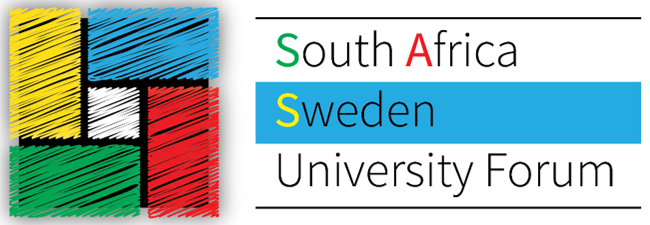General Information About SASUF
The South Africa-Sweden University Forum (SASUF), is a strategic internationalisation project uniting 40 partner universities in South Africa and Sweden. The project was launched in 2017 as an idea to take the South African and Swedish relationship to the next level. This idea resulted in a number of Vice Chancellors from Swedish and South African Universities coming together, jointly writing an application, and sending it in to STINT. This is the long story short about how SASUF came to the world, which became a three-year project that started running from 2018-2020, with the overall aim of strengthening ties between Sweden and South Africa in research, education and innovation. During the years 2018-2020 SASUF involved universities in Sweden and South Africa together with embassies, civil society organisations, funding agencies & ministries in both countries. Since its inception, the collaboration has connected more than 3000 Swedish and South African researchers, teachers, students and university leaders in workshops and seminars.
During the year of 2021, SASUF was granted further funding, and a decision was made to extend the successful SASUF collaboration with a new three-year period. This second phase of collaboration goes by the name SASUF 2030, which is run with the same aim as the first phase. This new three-year project officially started first of January 2022, and is now uniting 40 universities from across Sweden and South Africa.
Bringing together leading researchers, teachers, students, university leaders and other stakeholders, the project will develop joint solutions to the challenges posed by the UN Sustainable Development Goals (SDGs) and Agenda 2030. With the momentum built between Sweden and South Africa over the past few years, SASUF 2030 will pilot new and innovative ways of working with strategic internationalisation. In addition to the broad spectrum of activities already successfully proven in our initial collaboration, SASUF 2030 will introduce a range of new tools such as grants to develop virtual exchange, the inclusion of students in all aspects of the partnership and a new, interactive format for bilateral research seminars.
Thanks to our diverse university network, the support of hundreds of researchers in both countries, the SASUF Student Network (with more than 900 members) and the embassies in both countries, SASUF 2030 will constitute a formidable force for contributing to Agenda 2030 and represent a significant new phase in the bilateral relationship between Sweden and South Africa.
Activities in SASUF has led to the initiation of more than 70 collaborative projects with researchers and teachers from both countries addressing challenges linked to the SDGs. The funding from STINT was crucial for the success of the project, and through this SASUF has now made a substantial impact in the relationship between our two countries. In addition to this, SASUF was highlighted as a success story in the high-level Bi-National Commission meeting between the former Swedish Prime Minister Stefan Löfvén and the South African President Cyril Ramaphosa in March 2020.
The methodology and approaches in SASUF have been internationally recognised as a highly successful model for building an equitable platform for international collaboration. An example of this is that Norway and South Africa are currently looking into setting up a similar structure, using SASUF as a blueprint.
